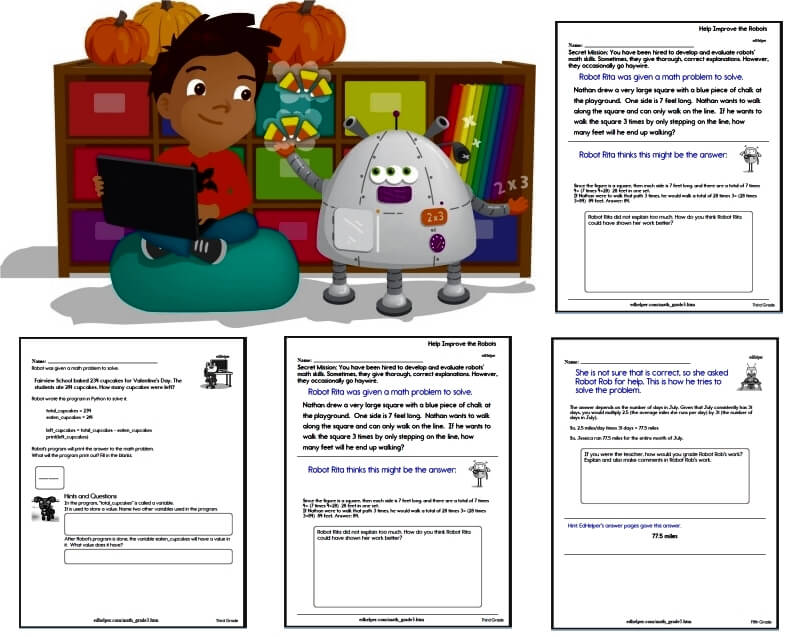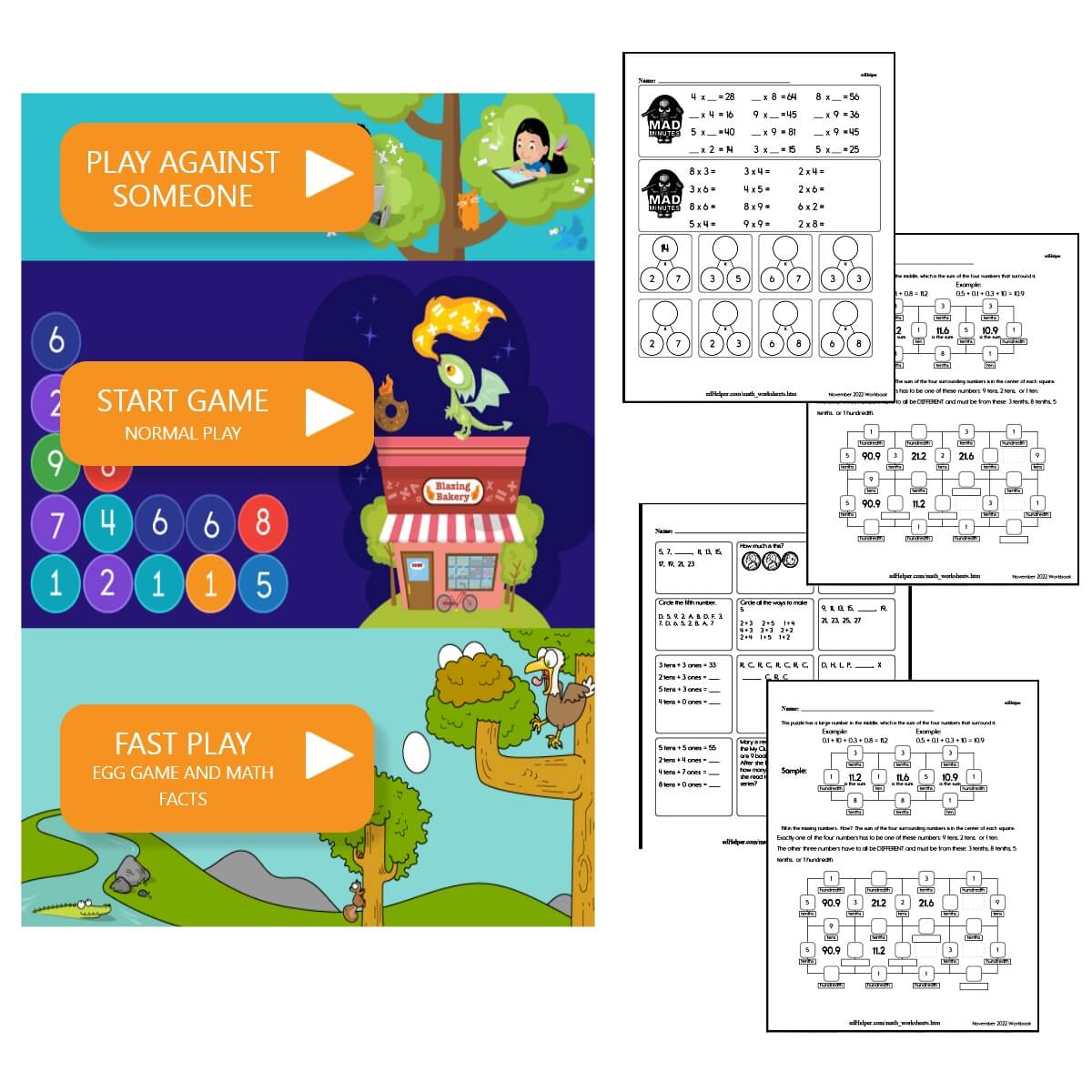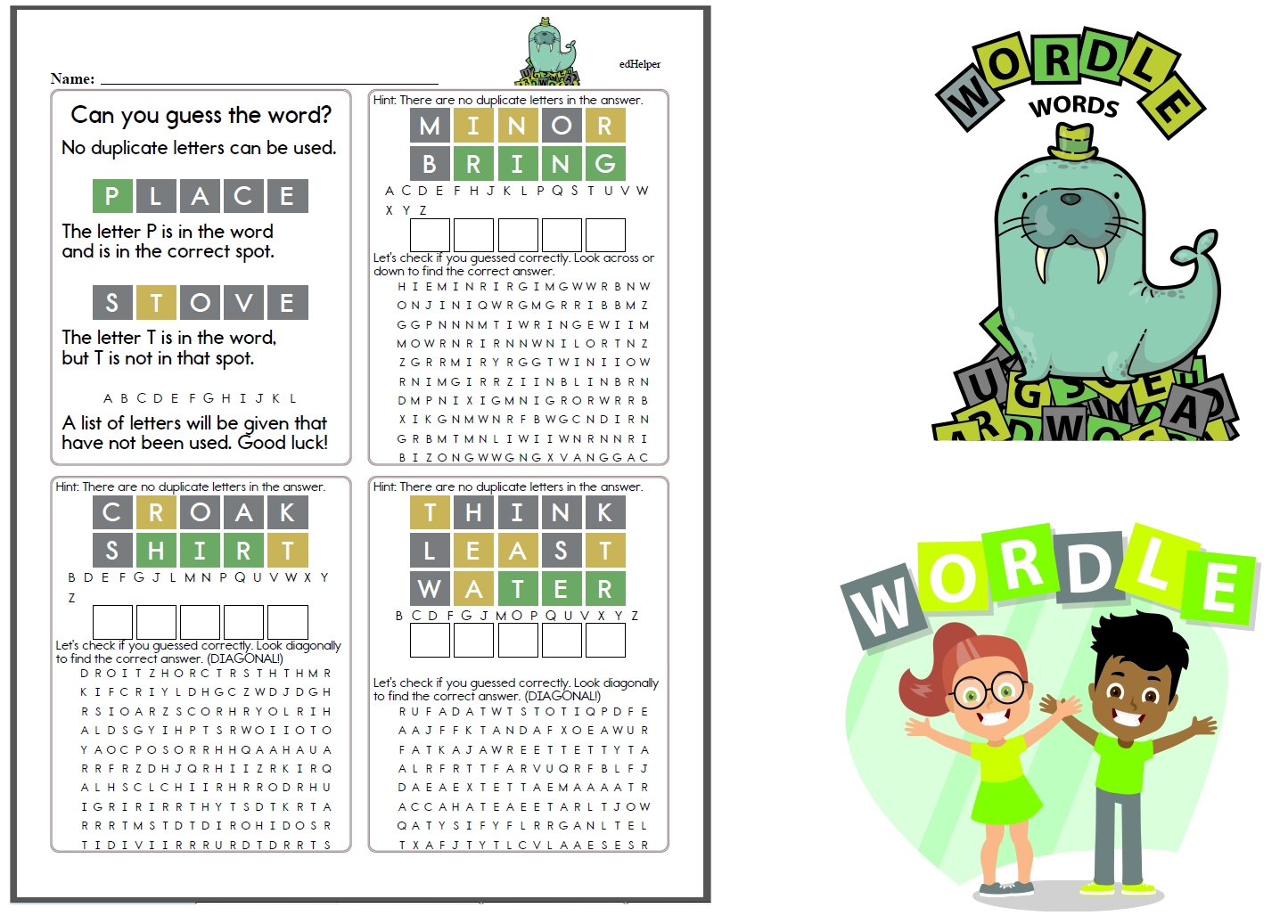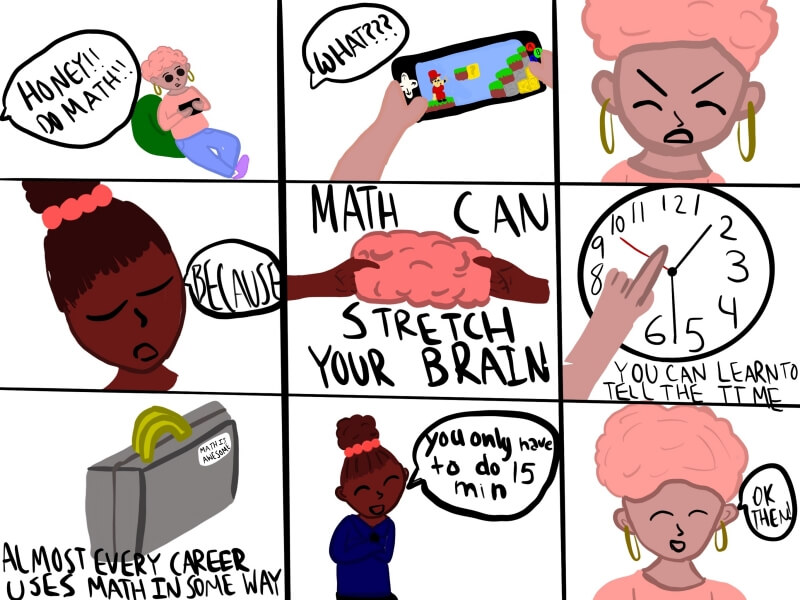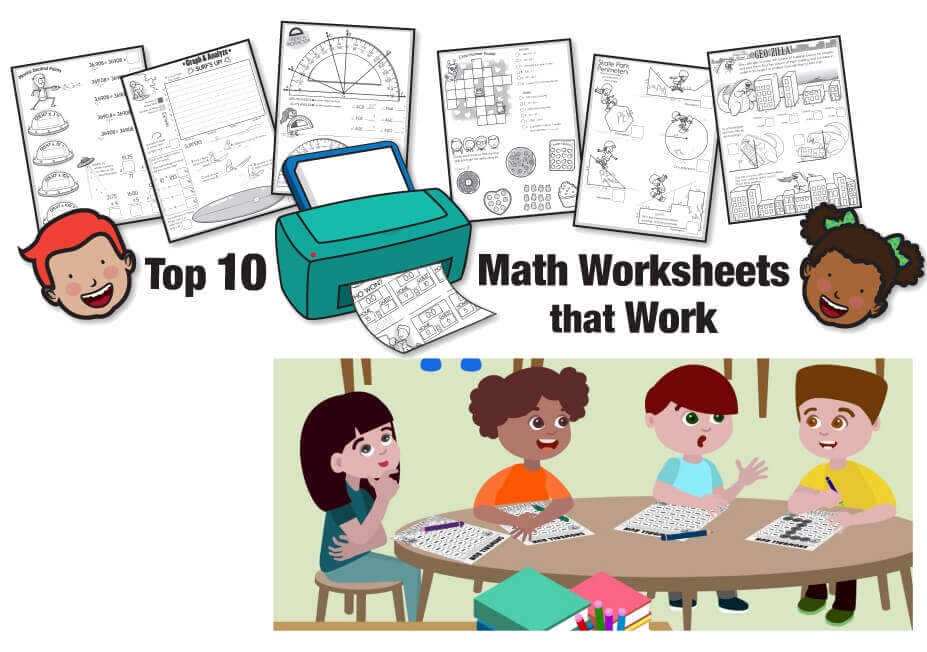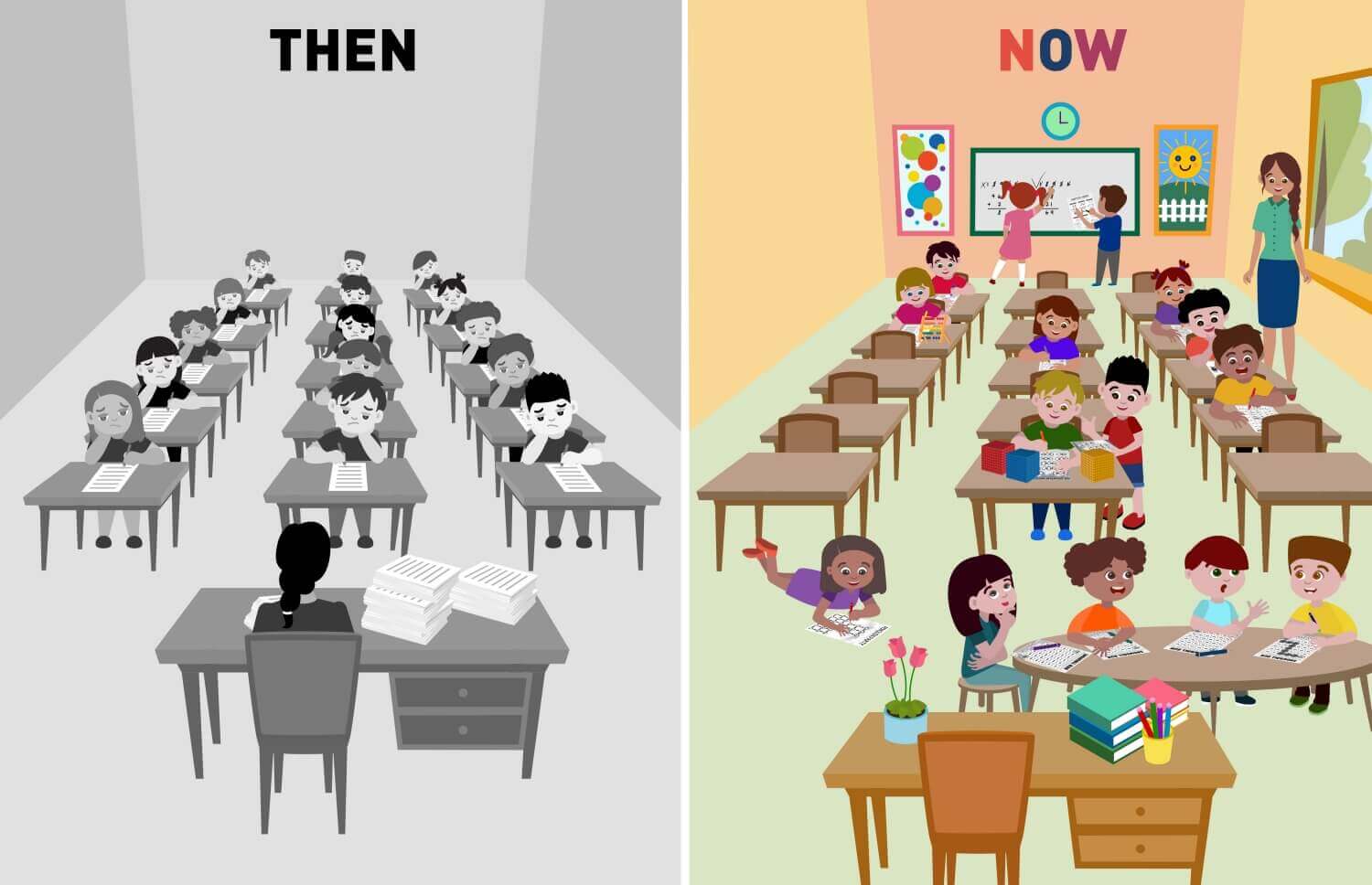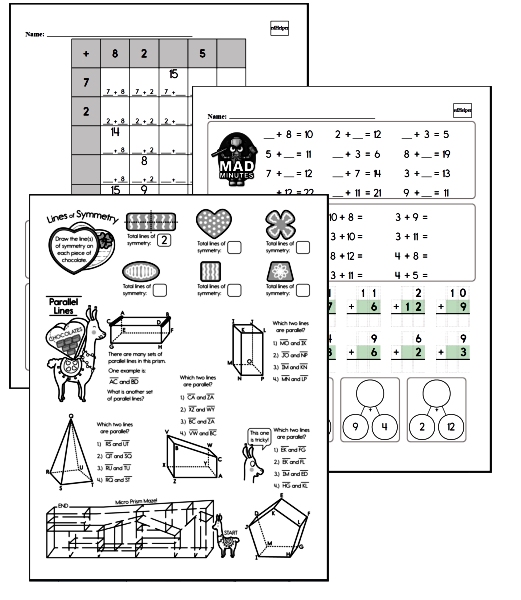Preparing Students for a Math Assessment
By: edHelper Staff
Updated: Apr 17, 2023

Are your students ready for the upcoming math assessment?
That's a trick question. Most teachers don't ever feel like their class is 100% ready ahead of the test!
Instead of asking yourself if they are ready, ask if you have done everything you could to help prepare your students with the right practice exercises before the exam.
When you follow the tips on this list, your answer will be a resounding "Yes!"
Practice Problem-Solving Strategies as a Class
There are a lot of great tips you can share with your students on how to work through tricky problems on the test. A few tried-and-true favorites include these:
- Underlining important words
- Rephrasing the question
- Rereading each question twice
- Double-checking answers
- Eliminating answers
If you really want these tips to stick, you have to do more than just tell your class about them. You have to show them how to use these strategies when faced with a real problem.
Display a question on the board and work through it together. Model what it looks like to underline important words, ask students to help you rephrase the question so it's easier to understand, and mark off answers you know are wrong before settling on the right answer.
Then, work together as a class or have students work in pairs or small groups to solve some math problems. Give them a chance to practice important test-taking skills, and they will be more likely to use them.
Practicing these skills can also boost their confidence, which is important when it comes to helping your students develop a positive mindset ahead of the assessment.
Use Worksheets to Practice Important Skills
Worksheets get kind of a bad rap, but they remain one of the best ways for students to solidify their learning, practice problem-solving, and follow directions, which are all important skills for students to have before a math assessment.
The trick is finding the right worksheets and doing them the right way.
Choose worksheets based on the skills your students need to practice. Then, give them a chance to practice in a variety of ways.
Let them work in pairs, have them solve the problems in groups, and go through especially tricky problems together as a class. Talk about all the different ways students can find the correct answer and what they should do if they don't know the right answer. Let them grade their own worksheets, and consider letting your students grade each other's work.
When you go beyond passing out worksheets for students to complete alone, you give your class a chance to dive deeper into the problem-solving process. That practice will help them when they find themselves face-to-face with a tricky problem on the exam.
Give Students a Demo Test
One of our favorite teacher tactics is to allow students to experience the test-taking environment ahead of the assessment. That means arranging the room the way it will be on the assessment day, but it also means giving them a sneak peek at what the test will look like.
Most testing companies have demo tests that you can practice with your students. That way, they can see what the test will look like and how the questions will be formatted, and they can see exactly how much time they will have to complete each section.
The best part about demo tests is that you can work through problems together. Give students the opportunity to work on the test like they will on test day, then go through the problems together. You can practice test-taking strategies, build their confidence, and clarify expectations so the actual assessment goes smoothly.
Play Math Games
Practicing ahead of an assessment can get dull when you're just working through problems and completing worksheets together. So you can give students a little bit of a break while still enabling them to practice by playing fun math games!
You might play a game together as an entire class, or you might break students into smaller groups to play. It gives them the ability to practice important concepts, but they also get to have fun and learn from each other while doing it.
Just make sure you choose games that target the skills students need to practice ahead of the test. A few ideas include these:
Jeopardy-style games that enable you to add your own questions
Swat-it, where students use a fly swatter to find the right answer on a poster board using a blank board game template to create your own game of review questions.
Don't forget about online games! Kids love technology, so allowing them to play with an app online is a great way to ensure they get plenty of math practice.
Put Students in Peer Tutoring Pairs
Peer tutoring can be tricky. It has the potential to negatively affect student self-esteem when they are being tutored, while student inexperience can make tutors bad at their job.
That said, peer tutoring is still a great option because it has the potential to help your students develop critical thinking skills ahead of the upcoming math assessment.
The trick to effective peer tutoring is to carefully set up your students for success. A few strategies to try include:
- Have students role-play teacher and student, letting each one play each part at least once.
- Help students develop the ability to give positive and corrective feedback the right way.
- Provide written prompts for each pair to work through together.
- Have students partner with a younger or older class, letting the older students take on the role of tutor.
- Mix up peer tutoring pairs depending on the skills you are practicing.
If you're worried that some of your students won't react well to peer tutoring, make it an optional activity. Allow students to sign up for peer tutoring so only those students who are open to the experience are paired up with each other.
Find Creative Ways for Students to Remember Important Concepts
Sometimes, it isn't getting down to work and calculating the answer that students have trouble with. It's remembering how to calculate the answer.
Finding creative ways for your students to remember important concepts when it's test time can help.
Anchor charts are always a great idea. They include any visual aid that demonstrates math concepts, formulas, or problem-solving strategies. You can hang them on the wall and remind students to look at them as they are working. You could also display them on the board during quiet work time, or you could even make flashcards for each student to keep on their desk.
Just make sure you don't leave them out during test time unless the standardized testing rules say they can be used during the assessment.
Mnemonics are great too! Use a tried-and-true favorite, like "The alligator has to open its mouth wider for the larger number" when dealing with greater than and less than, or make up a goofy mnemonic of your own with your class. The weirder, funnier, and simpler it is, the more likely your students are to remember it.
Offer Opportunities for Students to Practice at Home
It seems like homework is a dirty word. That means students aren't getting enough math practice at home.
But by practicing outside of school, students have the opportunity to make their knowledge permanent. That really comes in handy during the test.
The good news is that practice at home doesn't mean students have to be glued to a worksheet at the kitchen table for hours on end after school! Even just five or ten minutes of extra practice every day is a great way for students to work on important math skills.
There are several ways to provide your students with more opportunities to practice math at home:
Give your students a workbook and ask them to complete one page every night.
Give students and parents a list of math apps that they can play at home.
Create a list of YouTube lessons your students can watch at home.
Teach kids a math game in class. Then, have them take it home and play with their parents.
Math Assessments and Hybrid AI Learning Workbooks and Games





